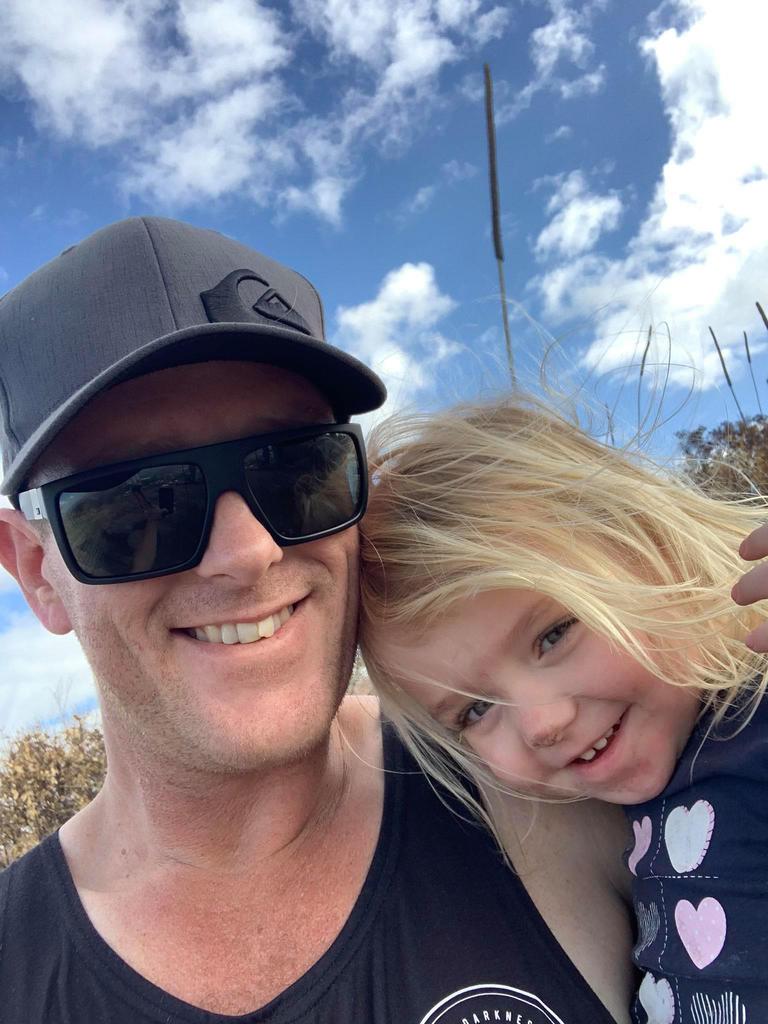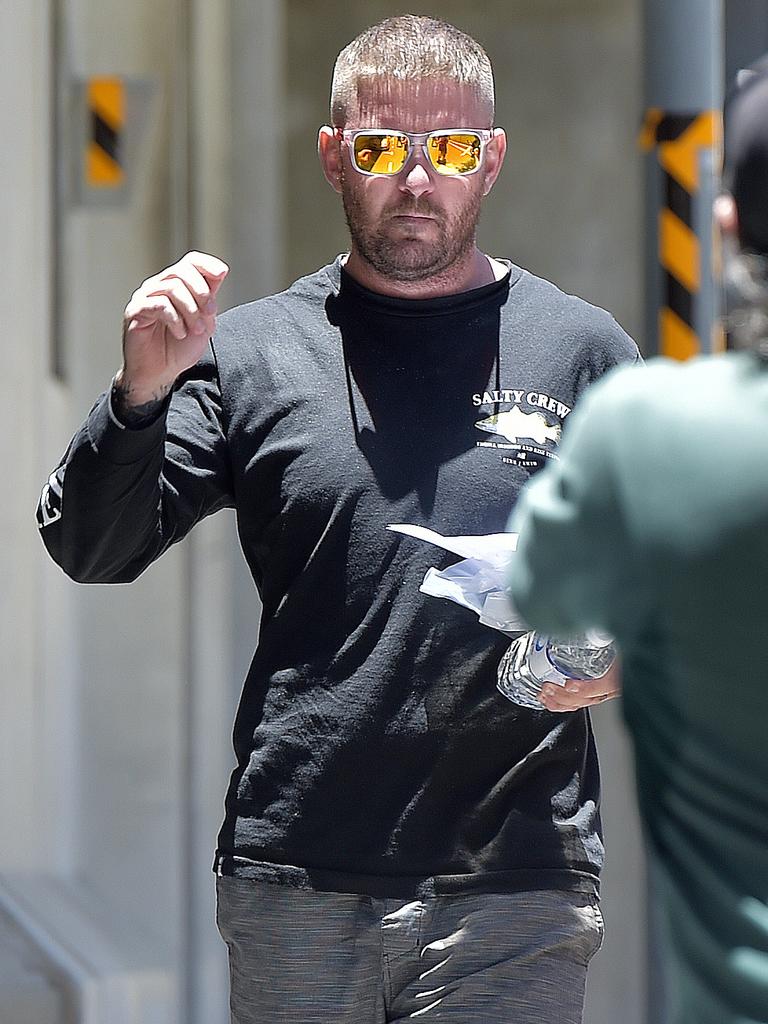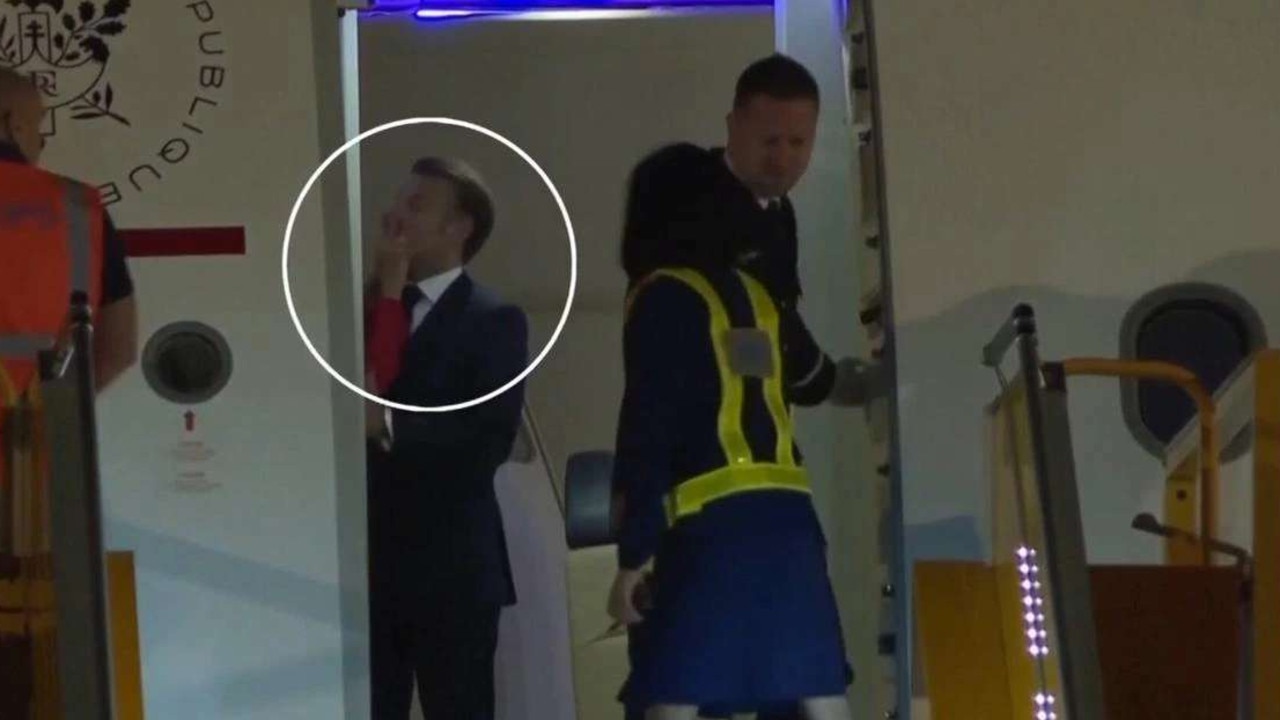Fatal distraction sees too many children die in hot cars
The death of a Townsville toddler has horrified Queenslanders but forgetting a child in a car can happen to anyone, writes Kylie Lang.
Kylie Lang
Don't miss out on the headlines from Kylie Lang. Followed categories will be added to My News.
The terrible tragedy of a three-year-old girl dying in a hot car has justifiably horrified Queenslanders.
And it’s not as if this incident is a one-off – too many precious innocents have perished this way.
But we don’t know all the facts, so instead of vilifying mother-of-four Laura Peverill on social media where everyone’s an expert, people need to calm the hell down.
Peverill, 37, and her new boyfriend Aaron Hill, 29, were charged with manslaughter after allegedly failing to realise Rylee Rose Black was locked in a car for several hours on a scorching Townsville day.

The couple was allegedly watching Netflix while the child died in Peverill’s Toyota Prado, parked in the driveway, on November 27 when ambient temperatures soared to 32.8C.
Horrendously, inside that vehicle, the temperature could have been as high as 75C, using data from an RACQ survey.
A more agonising and terrifying death is difficult to imagine. That poor little angel.
More details should emerge when Peverill and Hill, both on bail, front Townsville Magistrates Court on December 14, but police have ruled out drugs and alcohol.
For now, we are left shaking our heads and asking why. How could anyone forget their own child? How is this even possible?
Neuroscience offers some clues.
David Diamond is a professor of neurobiology at the University of South Florida, and a renowned expert on memory.

He likens memory to an imperfect machine. If we can leave our mobile phone in a shop, we can potentially leave our child in a car, he postures.
It has to do with the complexity of the brain, and not simply whether or not we are “good” parents.
While our prefrontal cortex thinks and analyses on the spot and our hippocampus makes memories, our basal ganglia is primarily concerned with forming habits and routine movement.
Professor Diamond says in instances where the basal ganglia rises up and takes over – typically when we are under great stress, sleep deprived or acutely distracted causing the prefrontal cortex and hippocampus to be overcome – we move into autopilot.
It’s why we might drive from A to B without paying attention to how we got there.
I’ve done it, and I bet you have too.
When my son was small, I once forgot to pick him up from daycare. I got all the way home – replaying work dramas in my exhausted head – before realising there was no babbling toddler in the back.
Another time I forgot to drop him off, arriving at work in the morning with him still strapped in his car seat. I thought what a goose I was, and sheepishly called the centre to advise he’d be late.
Psychologist Michael Carr-Gregg says it is common for people to operate in a “state of flow”, blithely carrying out routine tasks while focusing on other things.
Dr Carr-Gregg once put his child’s safety seat on the roof of his car. “The child wasn’t in it, but I drove off with the bloody thing on top; I had no memory at all of not putting it in the back seat,” he admits.
There but for the grace of God go we.


In 2013, a Perth father’s apparent lapse of memory led to utter tragedy.
The man arrived at his child’s daycare centre one afternoon to collect his 11-month-old son only to be told the child never arrived that morning.
The baby’s lifeless body was found in the back seat of his Honda Civic, and frantic attempts by staff to revive the child failed.
Police said the death was not suspicious, and the man was not charged.
In a chillingly similar case in the US, a father was acquitted of manslaughter after forgetting to drop his 21-month-old son to daycare, inadvertently leaving him to bake to death in the car.
Miles Harrison fainted when the verdict was read out, and said while his wife had forgiven him, he could not forgive himself.
In the US, more than 800 children have died in hot cars since 1998, and over half of those deaths have been accidental, according to the National Safety Council.
In Australia, more than 5000 children are rescued from hot cars each year, and charity Kidsafe describes cars as “unconventional ovens”.
For more than 20 years, American non-profit group KidsandCars.org has campaigned for child sensory technology to be mandated in new cars.
In a welcome move earlier this year, the House of Representatives passed the Hot Cars Act, which now awaits Senate approval and presidential sign off.
While Hyundai has already introduced motion sensors to detect children and pets, many other manufacturers are slow to act.
In February, Australia’s car safety rating body ANCAP (Australasia New Car Assessment Program) said such vital technology would be required for cars to get the highest safety rating by authorities here and in Europe from 2022.
Some detection systems are apparently so low cost they could become standard in all vehicles. Manufacturers have no excuse for dragging the chain on this.
But at the same time, people need to accept the reality of fatal distraction.
Leaving kids in cars is not something that happens only to “other” people or “bad” parents.
While it is understandable to rage at the tragic death of innocents, human fallibility suggests no one is immune.
Kylie Lang is Associate Editor of The Courier-Mail
LOVE
■ The Christmas tree looking all fancy in King George Square.
■ Britain having a “clinically authorised vaccine” against COVID-19 ready to roll from next week. Onwards and upwards, chaps.
■ The chemist who added the note “get well soon” on the directions of a colleague’s antibiotics. Nice touch, Priceline Pharmacy Ashgrove.
LOATHE
■ The State Government’s slack emergency response to the Fraser Island fire. Was water bombing seven weeks ago too much to expect? And now we get a review?
■ School holidays that drag on for months. Parents only get four weeks’ annual leave – if they’re lucky.
■ Faulty shop security alarms that go off at random. Isn’t the point to catch criminals?




